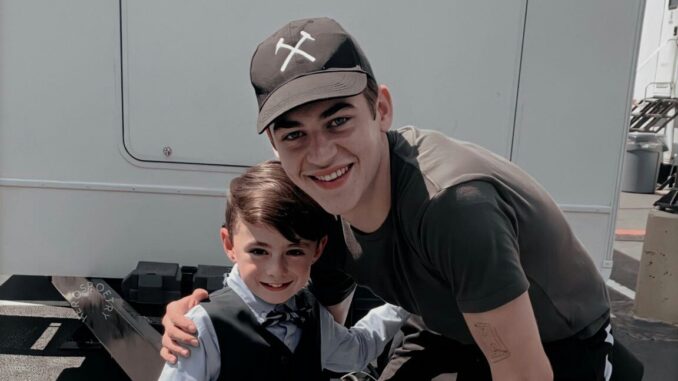
They weren’t just words. They were confessions, apologies, and fragments of a broken heart stitched together with trembling hands and aching hope. In After Everything, Hardin’s letters are far more than ink on paper — they are acts of survival. Each one is a step toward healing, a way of making sense of the chaos he created and the love he lost.
Hardin has always struggled with expression. His emotions would often erupt in anger or retreat into silence. But writing — slow, deliberate, and unfiltered — gave him something he never truly had before: clarity. For the first time, he wasn’t hiding behind pride or pain. He was confronting it. Every letter became a mirror, showing him not who he pretended to be, but who he truly was. Not a monster. Not just a lost boy. But a man learning to take responsibility for his own story.
When he writes to Natalie, it isn’t to erase the past. It’s to face it. He doesn’t beg for forgiveness. He simply acknowledges the harm he caused and the woman he hurt. That’s what makes the apology real — it isn’t performative; it’s personal. With Tessa, it’s more complicated. His letter to her is part closure, part confession, and part surrender. He pours out everything he couldn’t say when they were together — the truth, the sorrow, the what-ifs. And though he still loves her, he finally respects the space she needs. That, in itself, is growth.
But perhaps the most powerful letter is the one never spoken aloud — the one he writes to himself. Through every paragraph, Hardin begins rewriting his own identity. He’s no longer the product of his past, the mistakes, the inherited trauma. He’s someone in motion, in progress, trying. The act of writing becomes a way of reclaiming power, not over others, but over himself.
There’s something quietly beautiful about the metaphor of rewriting — not just stories, but lives. Hardin’s journey is about authorship, not just of a novel, but of a future. The book he finishes isn’t an ending, not really. It’s a beginning. A chance to start over with honesty. A chance to live with intention instead of instinct. He doesn’t erase his grief, or his guilt — he learns how to live alongside them. And in doing so, he finds hope. Not necessarily for a romantic reunion, but for peace. For purpose. For something better.
In the end, the letters are not grand gestures meant to impress or persuade. They are quiet revelations — raw, unguarded, and deeply human. They show us that healing doesn’t always come through someone else’s forgiveness, but through self-awareness. Through vulnerability. Through finally telling the truth when no one else is listening.
